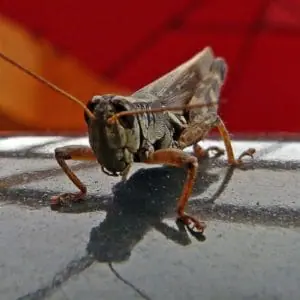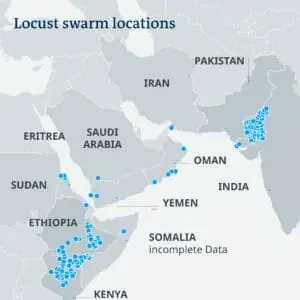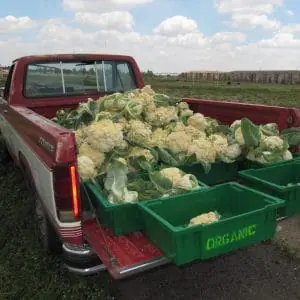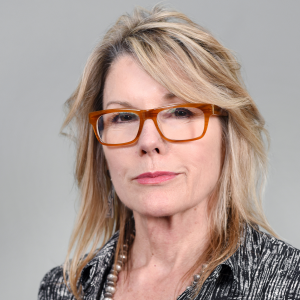SDG 2 - Zero Hunger
ASU professors contribute to federal food waste report
The research shows that the entire food chain is fraught with unpredictability, from how much it rains to how many farm workers show up for harvest, to which apple will be plucked from the bin.

Locust plagues are devastating countries across Africa
Right now, there are hundreds of billions of locusts wreaking havoc on vegetation across Africa. Experts are sounding the alarm, including United Nations humanitarian chief Mark Lowcock, who said the

Current locust swarms emphasize the importance of GLI researchers
Pakistan. Somalia. Ethiopia. Kenya. Locust swarms of near biblical proportions are currently wreaking havoc across a wide swath of southwest Asia and east Africa. According to the United Nations, the

The wisdom of indigenous foodways
To equitably transform our food systems and tackle climate change, we must include indigenous voices and decision-makers. That's why the 2020 Food Tank Summit, co-sponsored by ASU’s Swette Center for Sustainable Food Systems, focused on the wisdom of traditional knowledge systems.
Food Policy and Sustainability Leadership 2019-2020 Inaugural Cohort
After years of advocacy, serving in the Obama Administration, and working in the private sector, I’ve witnessed one salient need rise to the top: trained human capital. We must invest in the leaders of tomorrow to ensure they have the skills and tools for their innovative ideas to survive. Which is why I’m thrilled to announce Arizona State University’s Food Policy & Sustainability Leadership 2019-2020 class. With a commitment to shaping food and farm policy in the public interest, the inaugural cohort of leaders hails from across the country including Arizona, Arkansas, California, Connecticut, Colorado, Georgia, Hawaii, Massachusetts, Michigan, Mississippi, New York, North Carolina, and Washington, D.C.
ASU researchers find mung bean supplement improves strength in vegetarians
People have a number of reasons for adopting plant-based diets, but plant protein is harder to absorb. ASU researchers find mung beans are asustainably grown legume that provides bioavailable protein to consumers.

Scientists map food supply chains for every US city
Arizona State University and Northern Arizona University scientists have teamed up to map the food, energy and water supply chains for every community in America in a new project called FEWSION.
Watch Alice Waters's Wrigley Lecture about slow food culture
Alice Waters — famed chef, author and founder/owner of Chez Panisse restaurant — visited ASU to deliver the year's first Wrigley Lecture, "We Are What We Eat: Teaching Slow Food Values in a Fast Food Culture." This lecture was co-sponsored by the Swette Center for Sustainable Food Systems.

Sustainability scientist receives Public Humanities Scholars Award
McGregor began her career as an academic with a focus on legal philosophy and applied ethics, frequently teaching courses on bioethics and environmental ethics. From there, she became interested in climate justice, which eventually segued into a focus on food systems.

Interview with chef, author and slow food advocate Alice Waters
In anticipation for her Wrigley Lecture, titled “We Are What We Eat: Teaching Slow Food Values in a Fast Food Culture,” we asked Waters a few questions including how food can be a conduit for solving major issues in society and what advice she has for anybody who wants to discover the joy of seasonal, local, delicious food.

ASU students developing off-grid tech to help small farms build resilience to climate change
With a growing global population coupled with climate change challenges, farmers are working hard to feed the world. SolarSENSE, an ASU student capstone project using solar-powered technology, is working on a solution to help small, rural farms thrive.
Changing the world through better phosphorus management
Greener fields and bluer waters are in the cards thanks to a new project in development by the Sustainable Phosphorus Alliance at Arizona State University. Slated to launch in April, the Phosphorus Sustainability Challenge will encourage organizations to publicly commit to reducing their phosphorus footprint.